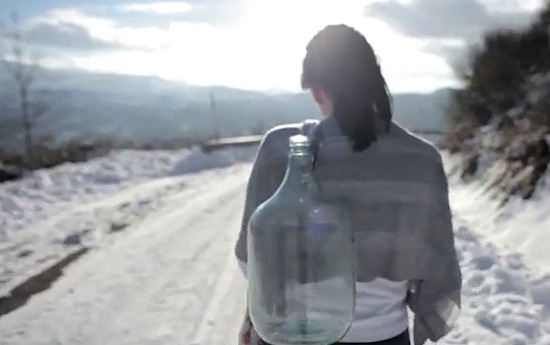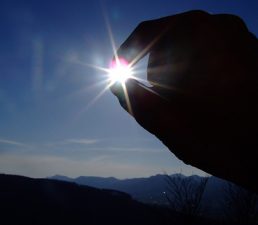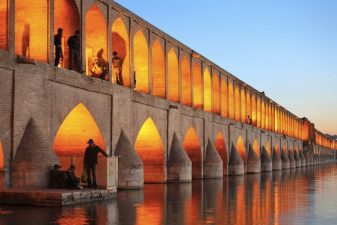 A powerful short film by Iranian-Canadian filmmaker Raha Shirazi, Acqua will make you look at water with new eyes.
A powerful short film by Iranian-Canadian filmmaker Raha Shirazi, Acqua will make you look at water with new eyes.
Raha Shirazi’s film Acqua is almost guaranteed to make you never take water for granted again. In it, a woman walks through snow in search of water with a jar on her back. Everywhere there is water, but after reaching a specific destination, she experiences some kind of trauma that especially resonates with us given our region’s tremendous water scarcity.
“In both Iran, and where I was in Italy, a long time ago women would travel from their village to bring back water,” Shirazi told Twitch Film. “Fetching water was always a woman’s job. Even now for purpose of vigil in these areas, women travel to a specific place and bring back water,” she added. Take a look at this beautiful film clip and let us know if it makes you re-evaluate your relationship to water.
[youtube]http://www.youtube.com/watch?v=B1MhI4znvaA[/youtube]
Water, life, and death
A Toronto-based Iranian-Canadian filmmaker and the Co-Artistic Director of Plural Productions, Shirazi made the super short film in a workshop that she completed in Italy with Italian filmmaker Michelangelo Frammartino. It premiered at the Toronto International Film Festival in 2011.
She told Twitch that the film is a “reflection of spiritual traditions” that “organically brushes the portrait of a young woman’s journey with water through the cyclical meditation of life and death.”
Shirazi is one of many artists in or from the Middle East who are responding to cultural, environmental, and social issues in surprising ways. Last year Iranian artists protested against the country’s terrible pollution with the Tehran Monoxide Project – a series of posters depicting the detrimental effects that city smog has on people’s health.
And in Gaza, several murals have created a collective outpouring of the region’s water woes – exacerbated by a host of political problems.
Dwindling water sources
Unlike many other projects though, Shirazi’s film evokes the sacred, a pre-condition, we’ve often argued, of convincing people to re-think the role that nature plays in their lives so that they will be willing to protect it.
Through Acqua, we find ourselves not only eager to nurture our dwindling water resources, but also the traditions that have preserved nature by default. Women may not always be responsible for gathering the water, but in parts of the Middle East and North Africa, they are often the earth’s custodians.
In Turkey, beekeepers on the Balyolu honey road are tending to an ancient tradition that has enormous ramifications for agriculture and human well-being, and in Morocco, the Berbers’ water management system is far superior than any western intervention.
Raha Shirazi has screened several other short films and is currently at work on a full-length documentary entitled Prisoner of Tehran.
More on art and the environment in the Middle East:
Zabaleen Film Portray’s Cairo’s Garbage City People
The Stunning Water Murals of Gaza (Photos)
Iranian Artists Fight Smog With the Tehran Monoxide Project




yes even in these days in some backward areas it’s happening. women have to travel for water.